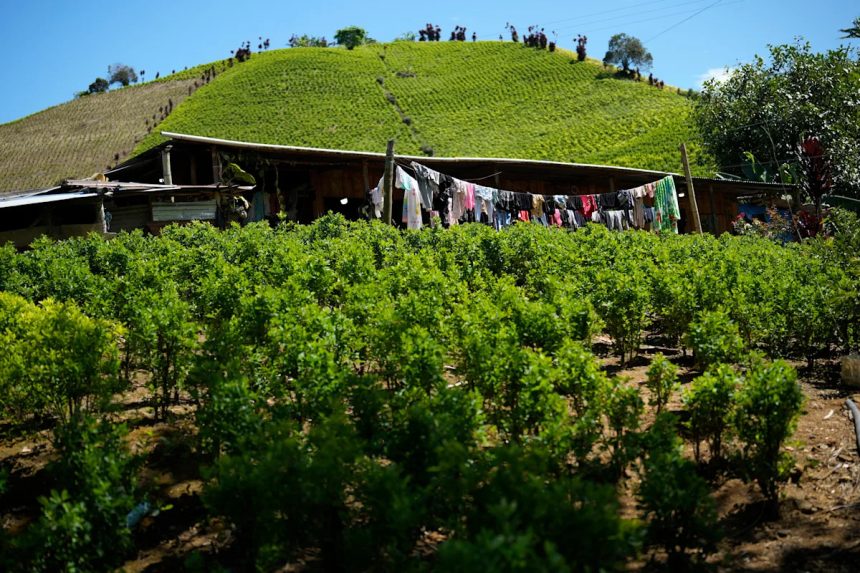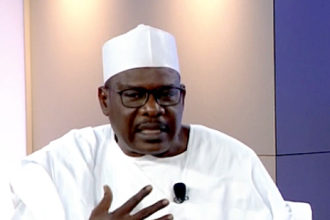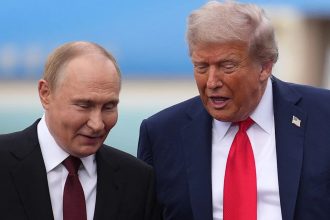MIAMI (AP) — The Trump administration on Monday added Colombia to a list of nations failing to cooperate in the drug war for the first time in almost 30 years, a stinging rebuke to a traditional U.S. ally that reflects a recent surge in cocaine production and fraying ties between the White House and the country’s leftist president.
Even as it determined that Colombia had failed to comply with its international counternarcotics obligations, the Trump administration issued a waiver of sanctions that would have triggered major aid cuts, citing vital U.S. national interests.
Nonetheless, it is a major step against one of the United States’ staunchest allies in Latin America, which analysts said could hurt the economy and further hamper efforts to restore security in the countryside.
President Gustavo Petro, who has said on several occasions that whisky kills more people than cocaine, lamented Trump’s decision during a televised cabinet meeting Monday, saying Colombia was penalized after sacrificing the lives of “dozens of policemen, soldiers and regular citizens, trying to stop cocaine” from reaching the United States.
“What we have been doing is not really relevant to the Colombian people,” he said of the nation’s antidrug efforts. “It’s to stop North American society from smearing its noses” in cocaine.
The U.S. last added Colombia to the list, through a process known as decertification, in 1997 when the country’s cartels — through threats of violence and money — had poisoned much of the nation’s institutions.
“Decertification is a blunt tool and a huge irritant in bilateral relations that goes well beyond drug issues and makes cooperation far harder in any number of areas,” said Adam Isacson, a security researcher at the Washington Office on Latin America. “That’s why it’s so rarely used.”
The president at the time, Ernesto Samper, was facing credible accusations of receiving illicit campaign contributions from the now-defunct Cali cartel and a plane he was set to use for a trip to New York to attend the U.N. General Assembly session was found carrying 4 kilograms of heroin.
A remarkable turnaround began once Samper left office. Successive U.S. administrations — both Republican and Democrats — sent billions in foreign assistance to Colombia to eradicate illegal coca crops, strengthen its armed forces in the fight against drug-fueled rebels and provide economic alternatives to poor farmers who are on the lowest rungs of the cocaine industry.
Cocaine production surges
That cooperation, a rare U.S. foreign policy success in Latin America, started to unravel following the suspension a decade ago of aerial eradication of coca fields with glyphosate. It followed a Colombia high court ruling that determined the U.S.-funded program was potentially harmful to the environment and farmers.
A 2016 peace accord with the Revolutionary Armed Forces of Colombia, the nation’s largest rebel group known as FARC, also committed Colombia to rolling back punitive policies likened to the U.S. spraying of Agent Orange during the Vietnam War in favor of state building, rural development and voluntary crop substitution.
Since then, cocaine production has skyrocketed. The amount of land dedicated to cultivating coca, the base ingredient of cocaine, has almost tripled in the past decade to a record 253,000 hectares in 2023, according to the latest report available from the U.N. Office on Drugs and Crime. That is almost triple the size of New York City.
Along with production, drug seizures also have soared to 654 metric tons so far this year. Colombia seized a record 884 metric tons last year.
But unlike past governments, manual eradication of coca crops under Petro’s leadership has slowed, to barely 5,048 hectares this year — far less than the 68,000 hectares uprooted in the final year of his conservative predecessor’s term and well below the government’s own goal of 30,000 hectares.
A critic of U.S. policy
Petro, a former rebel himself, also has angered senior U.S. officials by denying American extradition requests as well as criticizing the Trump administration’s immigration crackdown and its efforts to combat drug trafficking in neighboring Venezuela.
“Under my administration, Colombia does not collaborate in assassinations,” Petro said on Sept. 5 after the U.S. military carried out a deadly strike on a small Venezuelan vessel in the Caribbean that the Trump administration said was transporting cocaine bound for the U.S.
“The failure of Colombia to meet its drug control obligations over the past year rests solely with its political leadership,” Trump said in a presidential memo submitted to Congress. “I will consider changing this designation if Colombia’s government takes more aggressive action to eradicate coca and reduce cocaine production and trafficking, as well as hold those producing, trafficking, and benefiting from the production of cocaine responsible, including through improved cooperation with the United States to bring the leaders of Colombian criminal organizations to justice.”
Under U.S. law, the president annually must identify countries that have failed to meet their obligations under international counternarcotics agreements during the previous 12 months.
In addition to Colombia, the Trump administration listed four other countries — Afghanistan, Bolivia, Burma and Venezuela — as among 23 major drug transit or drug-production countries that have failed to meet their international obligations. With the exception of Afghanistan, the White House determined that U.S. assistance to those countries was vital to national interests and therefore they would be spared any potential sanctions.
The redesignation of Venezuela as a country that has failed to adequately fight narcotics smuggled from neighboring Colombia comes against the backdrop of a major U.S. military buildup in the Caribbean that has already led to two deadly strikes on small Venezuelan vessels that the Trump administration said were transporting cocaine bound for the U.S.
“In Venezuela, the criminal regime of indicted drug trafficker Nicolás Maduro leads one of the largest cocaine trafficking networks in the world, and the United States will continue to seek to bring Maduro and other members of his complicit regime to justice for their crimes,” Trump’s designation said. “We will also target Venezuelan foreign terrorist organizations such as Tren de Aragua and purge them from our country.”
___
Suarez reported from Bogota, Colombia. AP writer Manuel Rueda contributed to this report from Bogota.









